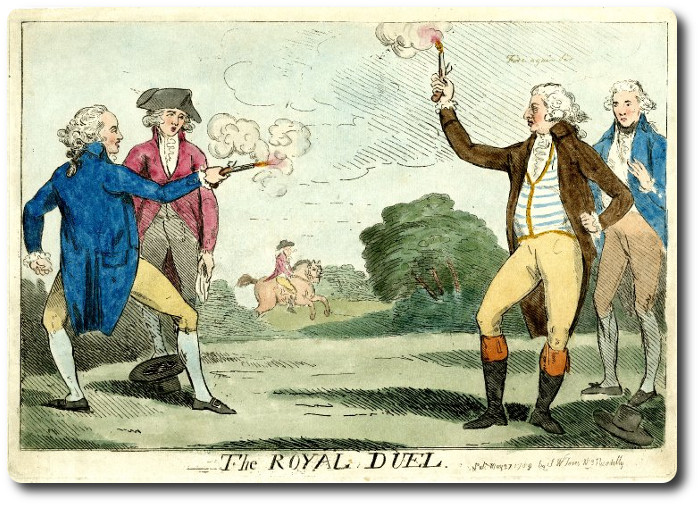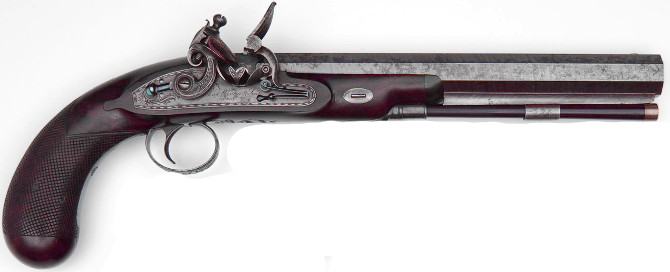Topic: Officers

Personal Honour in Regency Society
An Elegant Madness: High Society in Regency England, Venetia Murray, 1998
The mores of Regency society may have changed as fast as the fashions, but in one respect, at least, they remained steadfast. The code of honour was as rigid as ever. To the modern mind the idea that a man could be ostracized for life because he once cheated at cards seems unnecessarily harsh: but then so does the concept of fighting a duel over a difference of opinion about politics. In 1809 Castlereagh and Canning disagreed so violently over the management of a military campaign (the Walcheren expedition) that the only resolution seemed to be to fight it out. These two senior cabinet ministers, therefore, went off to Wimbledon Common at dawn, along with their equally distinguished seconds, and shot at each other with pistols. Fortunately neither was killed, though Canning was wounded. Both, understandably, resigned from the government. Even the Duke of Wellington, England's national hero, was involved in a political duel, with Lord Winchilsea, over the question of Catholic Emancipation: the participants met and exchanged shots, but the Duke missed and Lord Winchilsea 'deloped' (fired wide). And that was twenty years later, when the practice of duelling was said to be on the decline. When Lord Charles Lennox felt he had been slighted in the matter of his military promotion he actually challenged his commanding officer, HRH the Duke of York, to a duel. In the event nothing came of it because the Duke was persuaded that his royal status made it impossible for him to accept the challenge and duly refused to fight. For more ordinary men, however, it was impossible to refuse without loss of honour, as in the case of General Thornton, who was forced to resign his commission simply because he declined to fight a duel. There had been a row at a party, between the general and Theodore Hook, the novelist and editor of John Bull in the course of which the latter insulted the former. According to the received notions of honour at the time, the general should have immediately issued a challenge, and when he failed to do so his fellow officers set up a full-scale inquiry into the affair, found him guilty of cowardice, and demanded his resignation.

The Rogue notes:
The quoted text states that no duel took place between the Duke of York and Charles Lennox. The Duke's wikipedia page, however, states the following:
On 26 May 1789 he took part in a duel with Colonel Charles Lennox, who had insulted him; Lennox missed and Prince Frederick refused to return fire.


